OM# Documentation
Writing SDIF files
General
write-sdif-file allows writing a list of time-tagged SDIFFRAME objects into a new file.
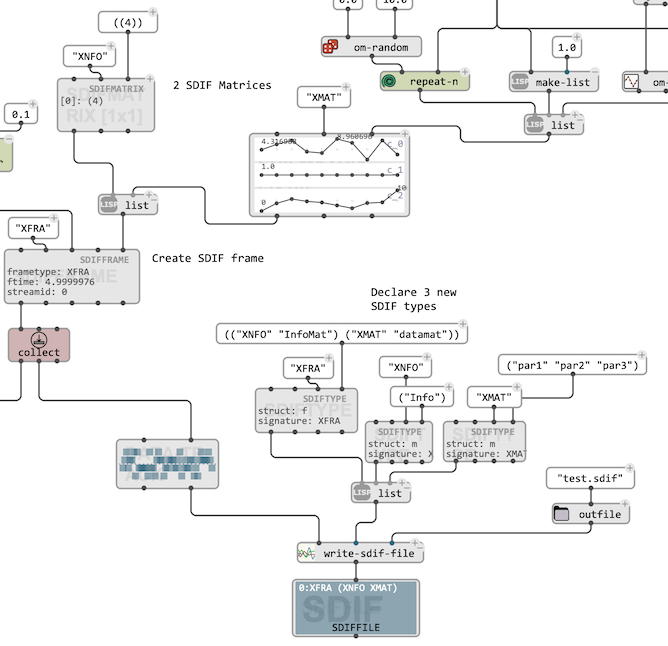
The SIDF types of every frame, and of every matrix in the frames must be either in the SDIF standard types, or declared with the
typesinput with a list ofSDIFTYPEobjects.
Name-value tables containing meta-data can also be included to the file with
SDIFNVTobjects connected to thenvtsinput.
Incrementally, using a file-stream
Similar to open-file-stream, open-SDIF-stream opens and returns a “stream” to a file (designated using a pathname), which can be used to incrementally write SDIF data.
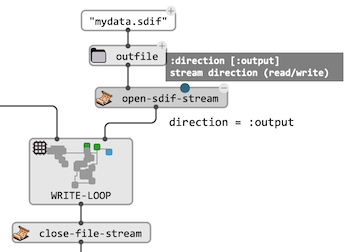
Before anything, it is necessary to write the SDIF file header with sdif-write-header. Optional inputs options allow declaring SDIF types, name-value tables, or stream descriptors:
types: a list ofSDIFTYPEobjects.nvts: a list ofSDIFNVTobjects.sids: a list of stream descriptors of the form(ID name description)where ID is a number (the stream ID),nameis a string, anddescritpionis a “tree” (also a string, describing the purpose or “target” of the data un URL-style, e.g."a/b/c").
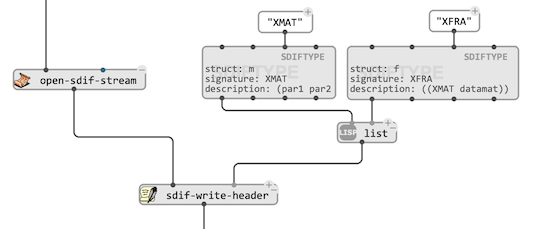
Once the SDIF header is written, frames (SDIFFRAME objects) can be added in the files one by one with sdif-write-frame.
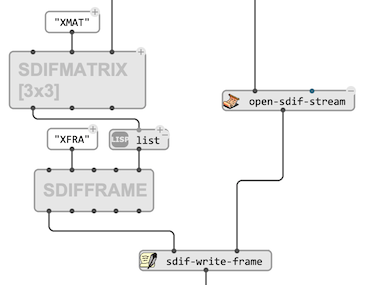
The “file stream” opened and returned by
open-SDIF-streamcan be closed withclose-SDIF-streamwhen no more read or write operations need to be done to the file.
→ See also how to do this in a loop in the See also the
sdif-write-loophelp-patch.
Saving specific objects and data as SDIF
As a complement to dedicated file-reading tools, a number of dedicated functions help writing SDIF files from OM# objects:
bpf->sdifsaves aBPFobject as SDIF. The type of frames/matrices can be specified (and declared if necessary) using additional inputs if the function.
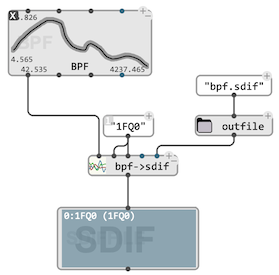
The
scopeparameter ofbpf->sdifdetermines whether the x-dimension of the BPF should be considered as time (default) or as the elements in a single matrix.
-
chord-seq->sdifsaves a list of times as1MRK/1TRCframes in a new SDIF file. -
markers->sdifsaves a list of times as empty1MRKframes in a new SDIF file.
→ See also the
sdif-write-objectshelp-patch.